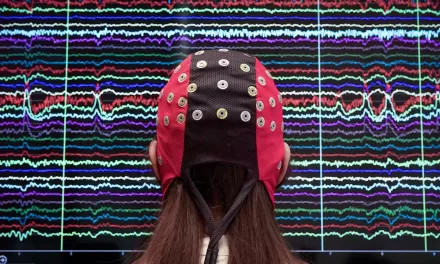Mental health challenges among Australian youth are on the rise, with about a third of young people now diagnosed with a mental health condition—double the rate recorded a decade ago. In response, the Australian Government has introduced legislation to ban social media for those under 16. While the bold move has garnered bipartisan support, experts argue that such a measure is unlikely to address the root causes of the youth mental health crisis.
In a recent article published in the Australian & New Zealand Journal of Psychiatry, researchers from the University of Queensland highlight the potential pitfalls of a blanket social media ban. They emphasize the lack of evidence directly linking social media to the rise in mental health problems and point to the significant benefits social media provides for some marginalized young people.
Complex Problems Require Multifaceted Solutions
Mental illness in youth is influenced by a myriad of factors, including social inequity, climate anxiety, gendered violence, and economic pressures. While the rise of digital technology coincides with increasing mental health issues, researchers caution that “correlation does not equal causation.”
Studies exploring the relationship between social media and mental health often rely on self-reported usage data, which can be unreliable. Additionally, few studies have investigated the role of parents’ social media habits or their capacity to guide children in navigating the digital landscape.
Rather than imposing bans, experts advocate for a public health approach to address the issue. Such a strategy would involve promoting digital literacy, implementing harm-reduction measures, and fostering healthy online habits among young people and their families.
A Public Health Framework for Digital Environments
Adopting a public health perspective could mitigate the risks associated with social media while retaining its benefits. Key recommendations include:
- Delaying Access: Restricting primary school-aged children from owning smartphones and implementing consistent online activity rules across home and school environments.
- Parenting Support: Offering training programs to equip parents with the skills to manage their children’s online activities effectively.
- Community-Wide Education: Extending digital literacy education to older Australians, many of whom play a role in raising children, and launching health promotion campaigns to inform families about digital safety tools and healthy boundaries.
Researchers argue that these measures would empower young people and their families to make informed decisions, fostering resilience and critical thinking in the digital age.
Investing in High-Quality Research
While the mental health effects of social media warrant further investigation, experts stress the need for rigorously designed studies to guide policy. High-quality research would help policymakers strike a balance between minimizing risks and maximizing the benefits of social media use.
Ultimately, addressing the youth mental health crisis requires a comprehensive and evidence-based approach. The researchers urge governments to invest in public health measures that support young Australians in navigating the digital world safely and sustainably.
As Dr. Julie A. Blake, lead author of the study, states: “Simple solutions seldom solve complex problems. Tackling youth mental health challenges requires an integrated, well-researched strategy—not a one-size-fits-all ban.”
For more details, refer to the original study: Julie A. Blake et al., Will restricting the age of access to social media reduce mental illness in Australian youth? Australian & New Zealand Journal of Psychiatry (2024). DOI: 10.1177/00048674241308692












